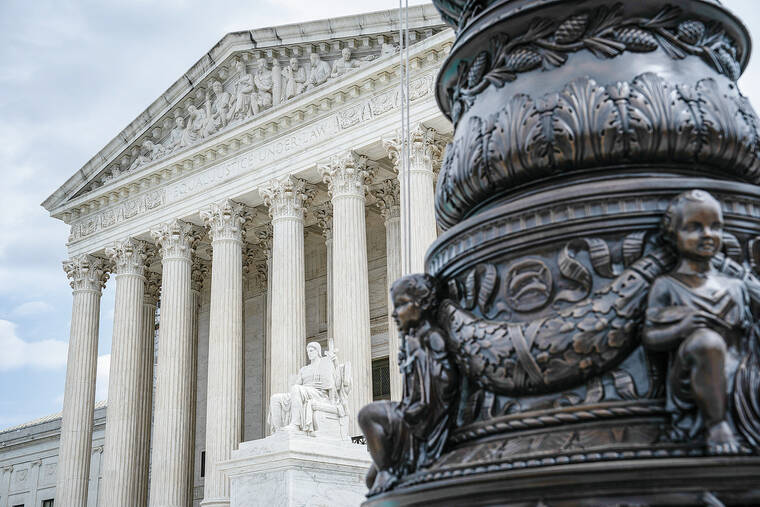Supreme Court upholds Trump-era tax provision
WASHINGTON — The Supreme Court on Thursday upheld a tax on foreign income that helped finance the cuts President Donald Trump imposed in 2017 in a case that many experts had cautioned could undercut the nation’s tax system.
Justice Brett Kavanaugh wrote for five justices, in the 7-2 decision. He was joined by Chief Justice John Roberts and the court’s three liberals.
ADVERTISING
In a concurring opinion, Justice Amy Coney Barrett, joined by Justice Samuel Alito, explained that although she agreed with upholding the tax, she disagreed with the broader reasoning by the majority. Justice Clarence Thomas dissented, joined by Justice Neil Gorsuch.
The question before the justices in the case appeared limited at first glance: Is the tax in question allowed under the Constitution, which gives Congress limited powers of taxation?
The ruling preserved the structure of the income tax system for now.
It also opened a window into what could be the next major tax case to come before the court: whether Congress can impose what is effectively a tax on Americans’ wealth, as President Joe Biden and other Democrats have proposed to do in various forms. That question loomed large in the opinions, highlighting divisions among the justices in how they view the notion.
The dispute involved a Washington state couple, Charles and Kathleen Moore, who challenged the law after they were required to pay nearly $15,000 in taxes stemming from their investment in a company in India supplying rural farmers.
The Moores’ investment fell under a provision of the Tax Cuts and Jobs Act of 2017 that altered how the federal government taxes corporate profits that are earned abroad. Under the provision, U.S. shareholders who own 10% or more of foreign corporations primarily owned or controlled by Americans must pay a one-time tax. Previously, they owed taxes only on profits that were brought into the United States.
At issue is whether the Moores should be subject to the tax, even though they never received, or realized, income from the investment in question.
Backed by conservative and business groups, the Moores sued, saying that the tax violated the Constitution’s apportionment requirements because it taxed their shares in the company, which they characterized as personal property, rather than on income they had gained.
© 2024 The New York Times Company


